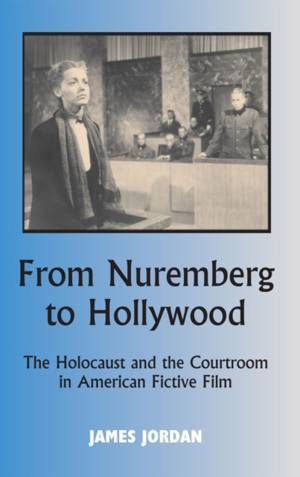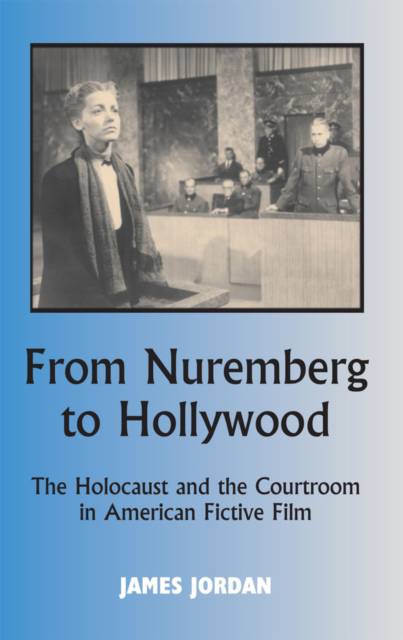
Bedankt voor het vertrouwen het afgelopen jaar! Om jou te bedanken bieden we GRATIS verzending (in België) aan op alles gedurende de hele maand januari.
- Afhalen na 1 uur in een winkel met voorraad
- In januari gratis thuislevering in België
- Ruim aanbod met 7 miljoen producten
Bedankt voor het vertrouwen het afgelopen jaar! Om jou te bedanken bieden we GRATIS verzending (in België) aan op alles gedurende de hele maand januari.
- Afhalen na 1 uur in een winkel met voorraad
- In januari gratis thuislevering in België
- Ruim aanbod met 7 miljoen producten
Zoeken
€ 74,45
+ 148 punten
Uitvoering
Omschrijving
From Nuremberg to Hollywood is a transformative book that explores the evolving relationship between the act of bearing witness to the Holocaust in the courtroom, and how this is perceived and imagined by American film. The book transforms the discipline by providing a cultural history of the intersection of the courtroom and the Holocaust in American film from 1944-2008, using case studies to question the ever-changing relationship between testimony, history, memory, truth, and film. It deconstructs the accepted notion of the Holocaust as being an event at the limits of the imagination. The book is divided into two sections that are delimited by the two real-life courtroom proceedings which have had the greatest influence on American film's representation of the Holocaust: the Nuremberg trials of 1945-46 and the Eichmann trial in 1961. The methodology is to evaluate the filmic trials by comparison with the real-life trials on which they are based, and then to place these films and trials within their broader social context. From Nuremberg to Hollywood asks questions of the spectator, both on and off screen: How does one witness such events, and then how does one bear witness in the form of a credible narrative? How is this presented on screen? In doing so, the book seeks to understand how one of the most horrific and chaotic of events of the 20th century is contained and controlled by the strict demands of the courtroom and the courtroom film genre. *** ''Much has been written about the representation of the Holocaust, but this is the first study to explore the prism of the courtroom in American film when dealing with the murder of European Jewry.'' --Prof. Tony Kushner, Parkes Inst. for the Study of Jewish/Non-Jewish Relations, U. of Southampton *** ''James Jordan's wide-ranging and absorbing study reveals, by means of excellent close readings, the great significance of war-crimes trials in cinema history, as well as for Holocaust representation and memory.'' --Prof. Sue Vice, English Literature, U. of Sheffield *** "Jordan's exceptionally well-researched, well-written study maps a little-known subgenre of (primarily) American Holocaust cinema -- films about the trials of perpetrators....Jordan covers some of the production histories of these films, discusses their plots, and analyzes their key cinematic strategies. His principal concern, however, is to chart the shifting nature of the evidence presented in these fictional trials. Highly recommended." --Choice, Vol. 54, No 2, October 2016 *** Librarians: ebook available [Subject: Film Studies, Holocaust Studies, Jewish Studies, Sociology, Film and the Law, History]
Specificaties
Betrokkenen
- Auteur(s):
- Uitgeverij:
Inhoud
- Aantal bladzijden:
- 254
- Taal:
- Engels
- Reeks:
Eigenschappen
- Productcode (EAN):
- 9780853038740
- Verschijningsdatum:
- 1/01/2016
- Uitvoering:
- Hardcover
- Formaat:
- Genaaid
- Afmetingen:
- 163 mm x 236 mm
- Gewicht:
- 544 g

Alleen bij Standaard Boekhandel
+ 148 punten op je klantenkaart van Standaard Boekhandel
Beoordelingen
We publiceren alleen reviews die voldoen aan de voorwaarden voor reviews. Bekijk onze voorwaarden voor reviews.









